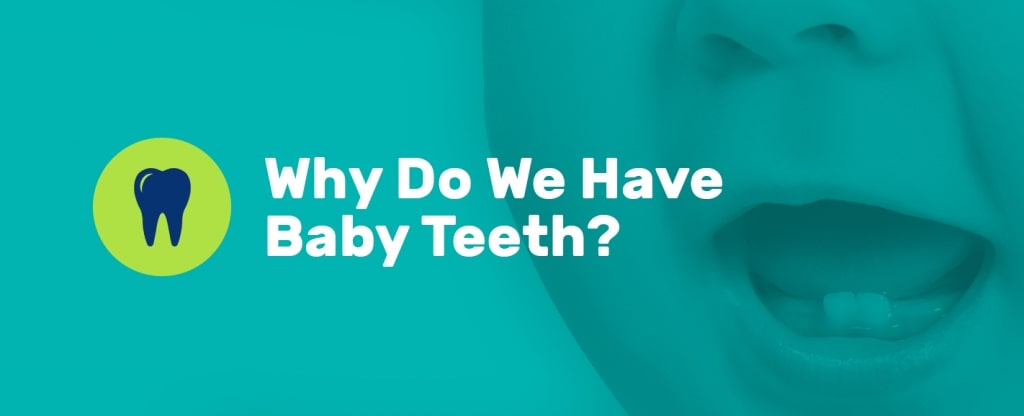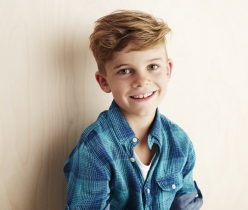Parenting is a series of memorable milestones, including teething. When your baby’s smile transitions from toothless to tooth-filled, it’s time to consider ways you can support their oral hygiene.
Baby teeth help maintain your child’s growth and development in several ways. Even though these teeth will eventually fall out, it is still essential to care for them. Let’s take a closer look at some of the reasons baby teeth health is a chief concern.
What is the Purpose of Having Baby Teeth?
Baby teeth, or primary teeth, fulfill several crucial roles in your child’s development, including:
- Helping your baby chew, smile and speak.
- Holding space in your child’s jaw for the permanent teeth that are growing beneath their gums.
- Facilitating healthy chewing, which builds and strengthens your baby’s face and jaw muscles.
Primary teeth are vital as your child progresses through developmental milestones like eating solid foods and learning to pronounce words. Keeping these teeth healthy allows your child to stay on track as they learn and grow.
Are Baby Teeth Important?
Primary teeth have a unique and essential role as your child grows. Your baby’s jaw is not big enough to accommodate the amount and size of teeth an adult has. Accordingly, baby teeth are small enough to fit in an infant’s mouth.
Imagine what would happen if we kept our baby teeth as we age. The teeth would eventually be too small and spaced out to function correctly, which is why we have two sets of teeth. A baby uses primary teeth to begin eating and speaking, and they shed these teeth in exchange for adult teeth when their mouth is ready.
Will Baby Teeth Affect Permanent Teeth?
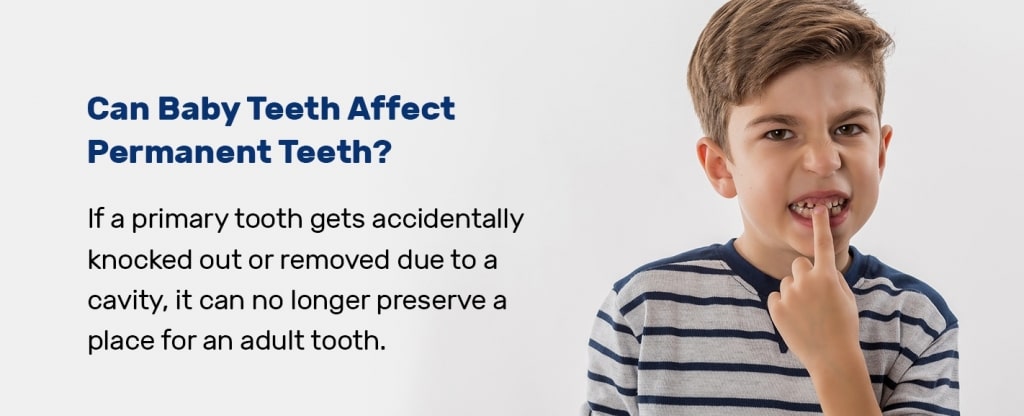
Baby teeth have a direct impact on your child’s permanent teeth. Each baby tooth acts as a placeholder for an adult tooth. If a primary tooth gets accidentally knocked out or removed due to a cavity, it can no longer preserve a place for an adult tooth. This issue can lead to shifting of teeth or crowding in your child’s permanent teeth and may delay adult teeth from growing underneath the affected area.
Proper baby teeth care and dentist visits can help prevent cavities or other issues that could jeopardize adult teeth.
Baby Teeth vs. Permanent (Adult) Teeth
Though both baby teeth and permanent teeth have similar purposes, you may notice differences between your teeth and your child’s teeth, including the following.
- Number: A full set of baby teeth includes 20 teeth, whereas adults have 32 permanent teeth. This difference accounts for the size of a child’s mouth versus that of an adult.
- Enamel: Baby teeth have a thinner coat of enamel compared to permanent teeth. Enamel helps protect the surface from decay, and the thin layer on a baby tooth can make it easier to get cavities.
- Hardness: Primary teeth are softer than permanent teeth, which makes them more susceptible to wear from grinding or acidic foods.
- Color: Baby teeth are naturally whiter than permanent teeth. This phenomenon is normal, and you may only notice it when your child has a mix of baby and permanent teeth at the same time.
Because of these differences, your baby’s oral care needs will differ from yours. Be sure to use gentle toothbrushes and the appropriate amount of toothpaste for your child’s age. Many toothbrush packages indicate what age range the brush is for, and you can use these numbers to pick an applicable product. As soon as your baby has teeth, a traditional nylon bristle toothbrush will work best. Whereas silicone brushes often feel better on gums prior to any teeth actually growing in.
Baby Teeth Development: When Do They Come in and Fall Out?
Your child is continually growing, and the same is true for their teeth. You can expect an array of changes as they cut baby teeth, lose their baby teeth and gain adult teeth.
Baby Teeth Eruption
Babies have a full set of primary teeth embedded in their jaws when they are born. The first time you see one of those teeth poking through your baby’s gums will probably be between 6 months and a year. Your baby’s front two teeth on the bottom are typically the first to erupt, followed by the top front teeth. These are commonly known as the central incisors. The adjacent teeth (lateral incisors) usually come afterward. After the 8 incisors have erupted (4 on the top and 4 on the bottoms), you can then expect the first set of molars. After the molars come the canines, and last, but not least, the final set of molars will erupt, bringing the total count to 20. In this stage, you’ll get to enjoy an adorable mix of teeth and gums in your child’s smile.
Losing Baby Teeth
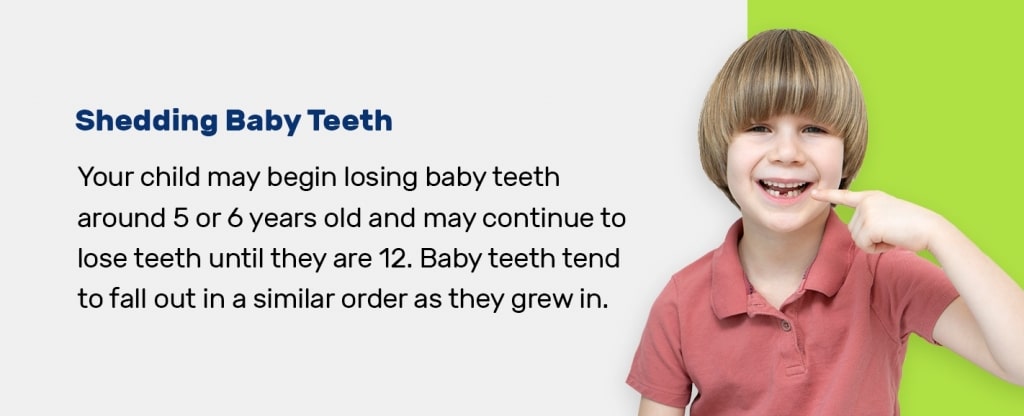
When your child’s adult teeth start to move upward toward the gum line, they will dissolve the roots of the baby teeth above them, which causes a child’s tooth to become loose and eventually fall out.
Your child may begin losing baby teeth around 5 or 6 years old and may continue to lose teeth until they are 12. Baby teeth tend to fall out in a similar order as they grew in. You can expect your child’s front teeth on the top and bottom to loosen first, and the rest of the mouth will follow suit toward the back.
This phase is a period of charming and changing smiles as your child loses and gains teeth. This phase is often called the “mixed dentition.”
Permanent (Adult) Teeth Eruption
Soon after a baby tooth is gone, a permanent tooth will start to grow into its place. You can expect to see this begin around age 6 or 7 and continue until age 13. As a 13-year-old, your child will have almost all their permanent teeth situated in their mouth. The only remaining teeth are the back-most molars, known as the wisdom teeth, which usually do not erupt until a child is in high school or college.
It is after all the permanent teeth have grown in when your child may need braces to correct any crooked teeth.
When Should I Take My Baby to the Dentist for the First Time?
The American Dental Association recommends you bring your child to the dentist soon after their first tooth erupts and before their first birthday. At your child’s first appointment, a pediatric dentist can:
- Check for cavities or any other issues
- Demonstrate how to clean your child’s teeth
- Give you recommendations for how to handle habits that impact teeth, like thumb sucking
When you bring your child to a pediatric dentist, you can trust you’ll receive the high-quality care you desire from professionals with special training to serve kids.
Schedule Your Child’s First Dental Appointment at Sprout Pediatric Dentistry & Orthodontics
At Sprout Pediatric Dentistry & Orthodontics, we understand both you and your child may feel apprehension about their first appointment. That’s why we make it our goal to provide a compassionate, respectful environment where your kids feel safe and welcome. From touring the facilities to completing an exam and a cleaning, we make sure your child receives the highest-quality care and feels at ease with their experience.
To begin your child’s oral health care journey, schedule an appointment today.
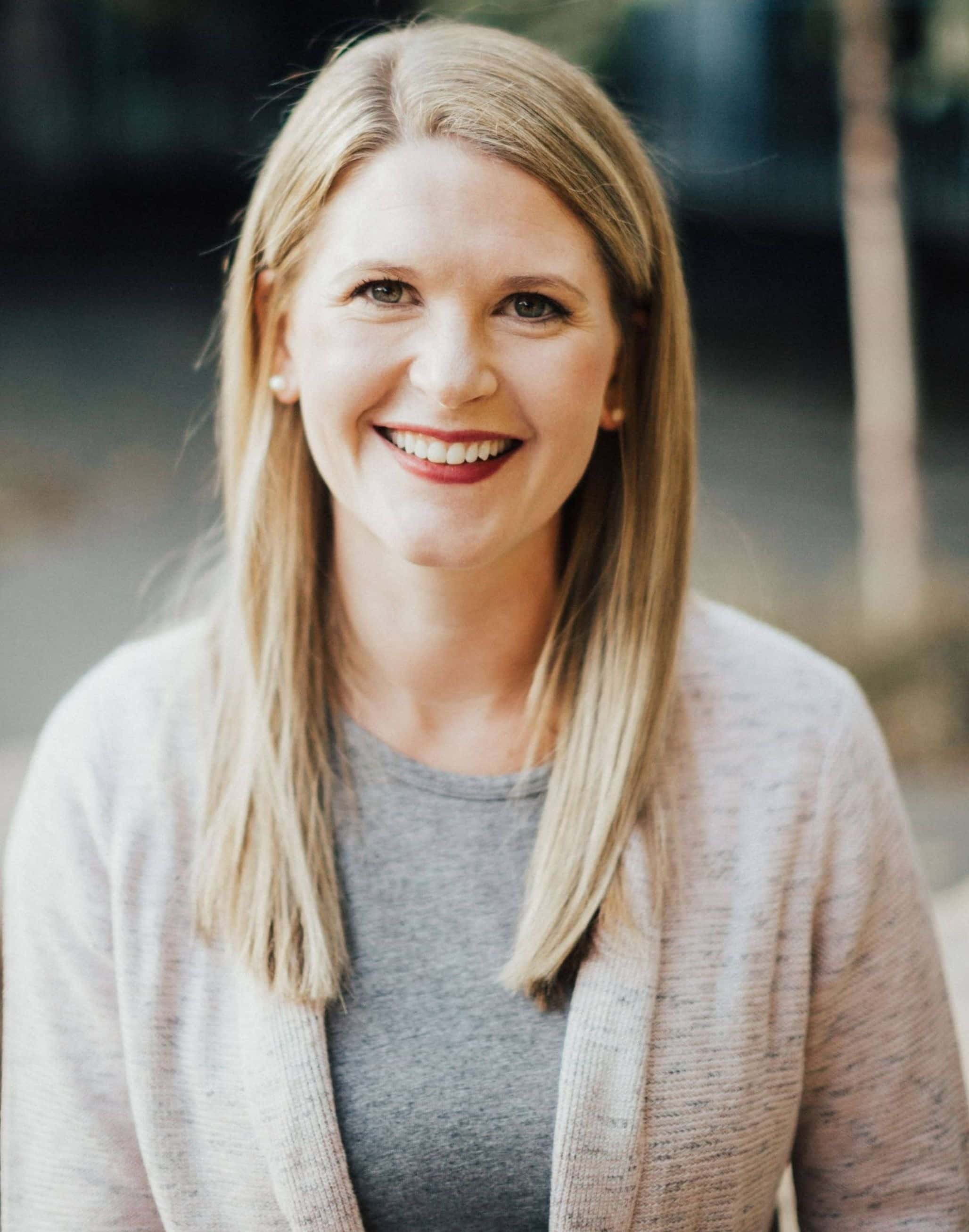
Dr. Dana grew up in Portland and went to Temple University in Philadelphia, PA for dental school. She then moved to Anchorage, AK for her residency in Pediatric Dentistry. Dr. Dana takes a holistic approach to pediatric dentistry & is able to use her own parenting experience to sympathize and understand each family’s unique dynamic.


